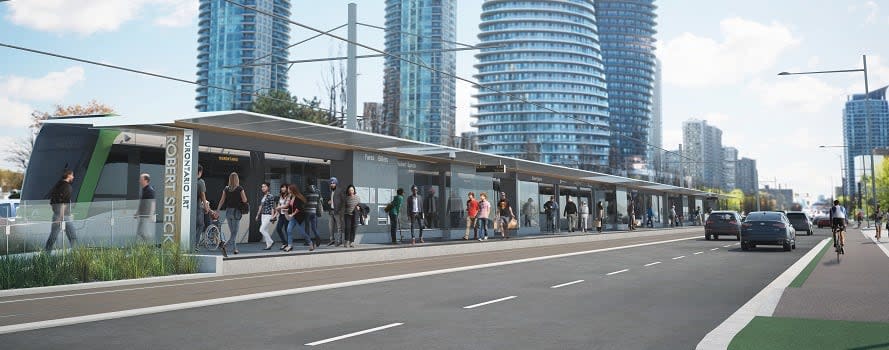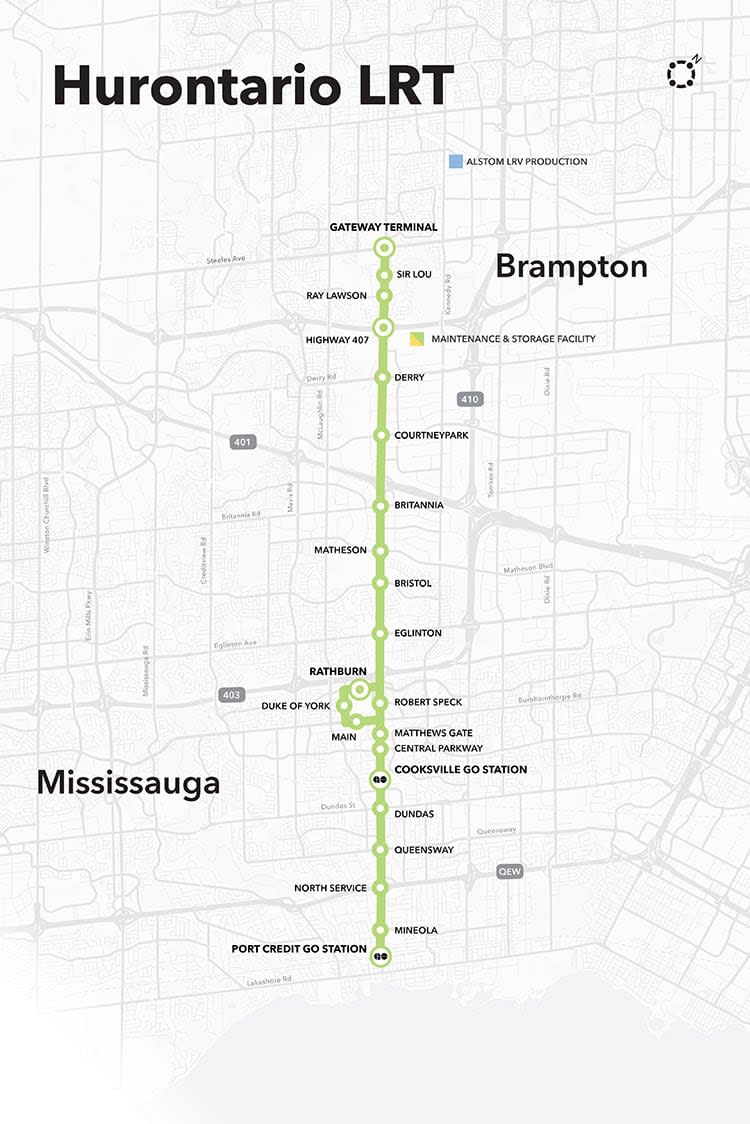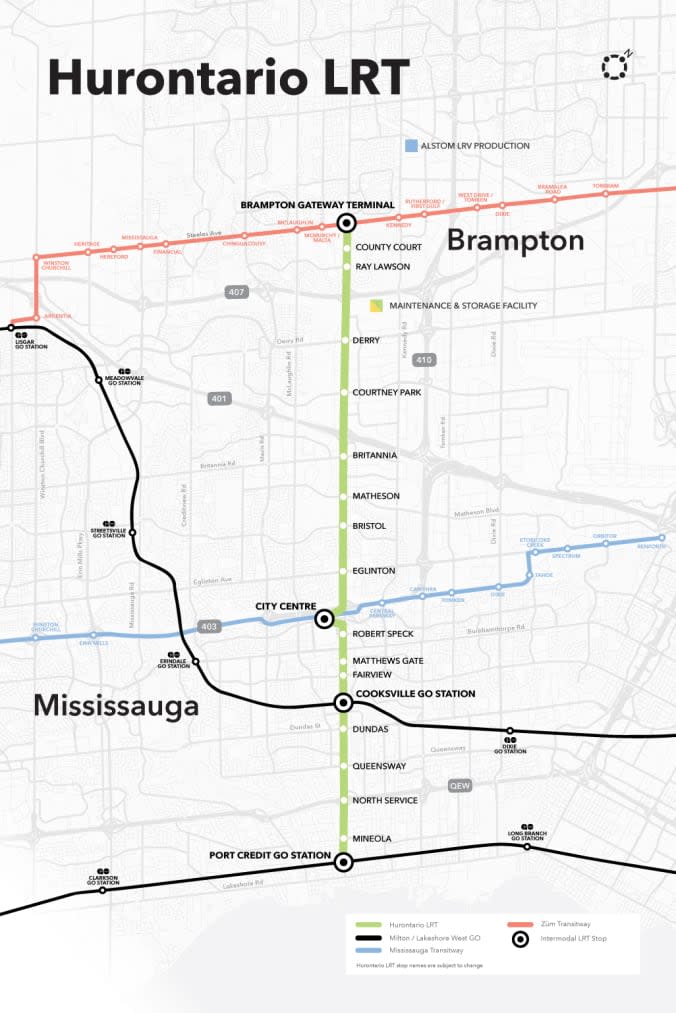Ford government plans to extend Hazel McCallion LRT to downtown Brampton and Mississauga

The Ford government is planning to extend the Hazel McCallion Light Rail Train by adding a loop in downtown Mississauga and an extension into Brampton's downtown.
In a Jan. 17 letter, Ontario Transportation Minister Prabmeet Singh Sarkaria directed Metrolinx CEO Phil Verster to: "proceed with the development of an initial business plan along with a strategy to go to market for bids to build both Mississauga loop and the Brampton extension."
It is not clear how the plans to extend will affect the opening of the Hazel McCallion line.
The opening of the LRT is already two years behind the completion plan for 2022. Metrolinx started rail track installation for the project last year, which is currently scheduled to open in September 2024. There are no updates on whether Metrolinx is on track to complete it this year.
In a statement to CBC Toronto, Metrolinx said "both the loop and Brampton Extension have always been viewed as strong and viable next phases of this project," and that it will respond to the ministry by Feb. 5.
In the letter, Sarkaria said the Hazel McCallion LRT is making "strong progress" under Ford's leadership, and compared it to the delays in the Eglinton LRT construction, which he blamed on the previous Liberal government, which hasn't been in power since 2018.
"Our government is doing things differently," Sarkaria said.
The Hazel McCallion LRT extension plan comes as Metrolinx has been facing criticism over delays in the Eglinton LRT construction, which was initially supposed to finish by 2020. The repeatedly delayed and over-budget project has been stymied amid reports of hundreds of quality control issues. It currently has no opening date.
LRT line has contentious history
The plans for Hazel McCallion LRT, formerly known as the Hurontario LRT, have faced many changes over the years.
The initial version of the line would have ended at the Brampton GO station. However, Brampton councillors voted in 2015 against stretching the light rail line into downtown because it would have cut through the city's historic Main Street. That decision took out four stops, resulting in the LRT ending at the Brampton Gateway terminal on Steeles Avenue.
Then, in 2019, Metrolinx removed the Mississauga loop from the line's design, citing financial pressures associated with the $4.6 billion project.
That move reduced the LRT to an 18 kilometre line between the two fast-growing cities with 19 stops. You can see the changes for yourself in the maps below.
Here's the initial design released by Metrolinx:

The original plan for the LRT included a three-stop loop through downtown Mississauga. (Metrolinx)
Here's what it was changed to:

In 2019, Metrolinx removed the Mississauga loop from the Hazel McCallion LRT, then known as the Hurontario LRT, to cut costs. (Metrolinx)
Reaction to the move
There was quick reaction to the government's plans on Thursday.
"This is something we have long advocated for and knew it was vitally important to the growth of Mississauga," Ontario Liberal Party leader, and former Mississauga mayor, Bonnie Crombie said at a news conference.
Mississauga is expected to build roughly 135 more high-rise apartment and condo buildings over the next 20 years, according to Crombie.
With that level of growth, she said the province is "doing the right thing."
To address the growing transportation needs in the fast–growing Peel region, the province is looking at "historic investments" so that "Ontarians can spend less time commuting and more time at home, doing what matters most to them," Ministry of Transportation spokesperson Dakota Brasier said in a statement.


